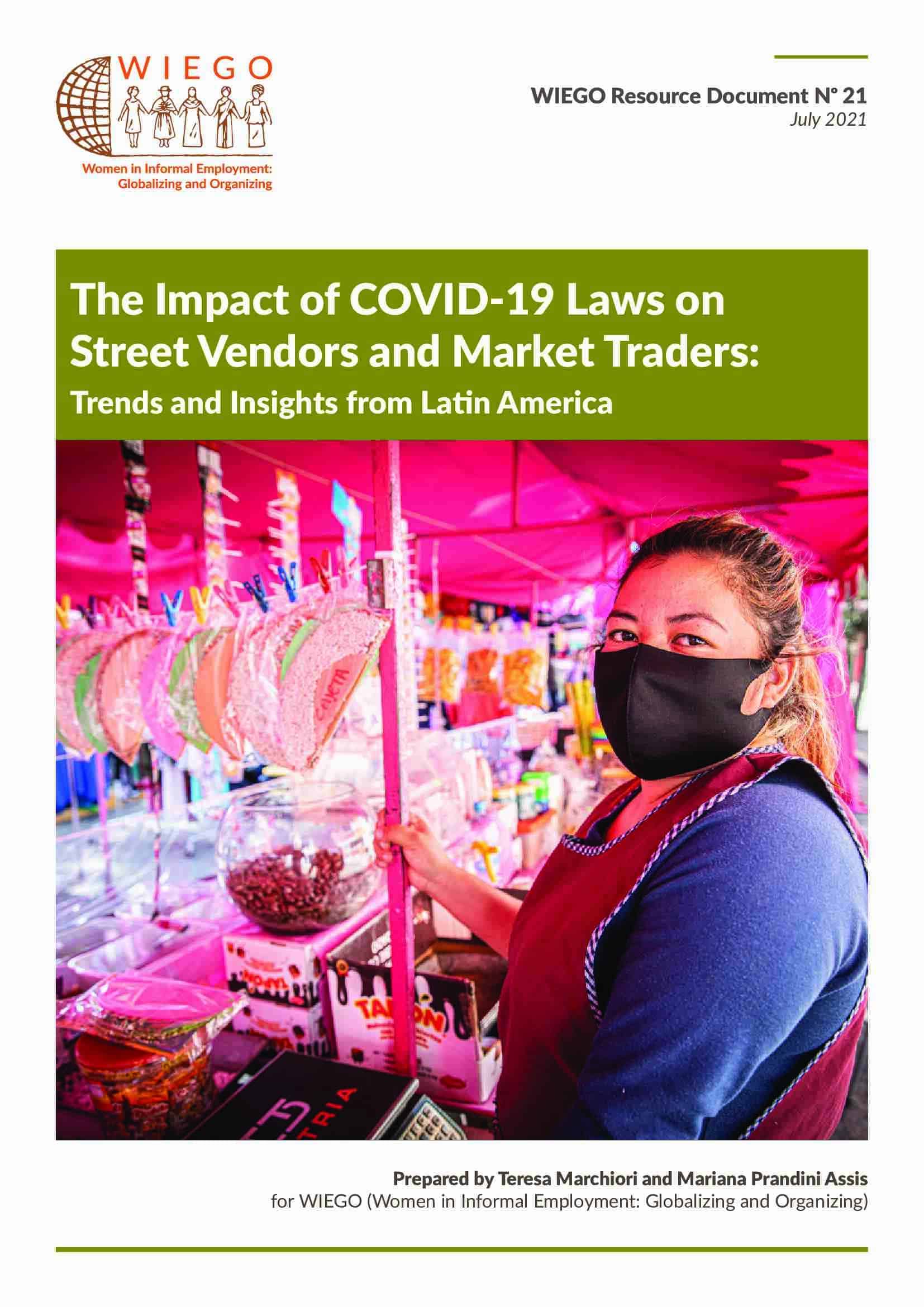The Impact of COVID-19 Laws on Street Vendors and Market Traders: Trends and Insights from Latin America
This study examines the laws and regulations passed in response to the COVID-19 crisis in Latin America, and their impact on informal vendors, including market and street vendors. Our analysis covers 16 countries in the region – Argentina, Bolivia, Brazil, Chile, Colombia, Costa Rica, Ecuador, El Salvador, Guatemala, Honduras, Mexico, Nicaragua, Panama, Paraguay, Peru and Uruguay.
Key Points
- For the first time, laws and regulations recognized informal food vendors as essential economic actors. Rules however differed depending on whether vendors worked in markets or on streets: 12 countries allowed market food vendors to continue working, seven let street food vendors continue their activity, and only two explicitly designated them as essential workers.
- Local authorities had a primary role in the regulation of access to public space and informal vending during the pandemic - by imposing health and safety measures to prevent the spread of the virus, relocating street vendors, and supporting informal vending by waiving or reducing fees and local taxes.
- In all countries but Bolivia, the cost of cleaning supplies and personal protective equipment needed to comply with health and safety protocols was left to workers to bear. In Bolivia, local authorities assumed responsibility for the sanitation of public markets.
- Latin American countries legislated many social protection laws and regulations in response to the COVID-19 crisis. This signals a shift in the way that governments address citizens as holders of justiciable social rights, rather than as “'aid beneficiaries”.
- For the first time in the region, social assistance laws and regulations expressly included informal workers as beneficiaries. Fourteen national governments instituted cash transfers and 10 of them recognized informal workers as entitled legal subjects in their own right.
- Other common social protection measures, legislated in 14 countries, included distribution of goods in kind, waivers, suspensions or implementation of social fees for utilities, and price control for essential items and tax relief.
- In seven countries, access to housing was also guaranteed through social protection laws and regulations.
View list of all: Resource Documents

